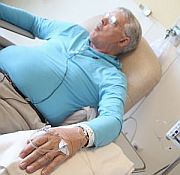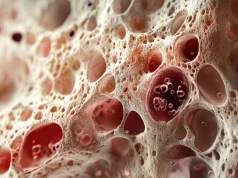No improvement in quality of life, even for patients with good baseline performance status
FRIDAY, July 24, 2015 (HealthDay News) — For patients with end-stage cancer, chemotherapy use does not improve quality of life near death (QOD), even for those with good performance status, according to a study published online July 23 in JAMA Oncology.
Holly G. Prigerson, Ph.D., from the Weill Cornell Medical College in New York City, and colleagues examined the correlation between chemotherapy use and QOD as a function of patients’ performance status in a longitudinal cohort study. The authors assessed chemotherapy use and Eastern Cooperative Oncology Group (ECOG) performance status among 312 patients with progressive metastatic cancer after at least one chemotherapy regimen.
The researchers observed no correlation between chemotherapy use and patient survival, controlling for clinical setting and patients’ performance status. Chemotherapy use versus nonuse correlated with worse QOD among patients with good (ECOG score, 1) baseline performance status (odds ratio [OR], 0.35; 95 percent confidence interval [CI], 0.17 to 0.75; P = 0.01). Among patients with moderate or poor baseline performance status (ECOG, 2 or 3, respectively), baseline chemotherapy use was not associated with QOD (ORs, 1.06 [95 percent CI, 0.51 to 2.21; P = 0.87] and 1.34 [95 percent CI, 0.46 to 3.89; P = 0.59], respectively).
“The QOD in patients with end-stage cancer is not improved, and can be harmed, by chemotherapy use near death, even in patients with good performance status,” the authors write.
Two authors disclosed financial ties to the biopharmaceutical industry.
Copyright © 2015 HealthDay. All rights reserved.








